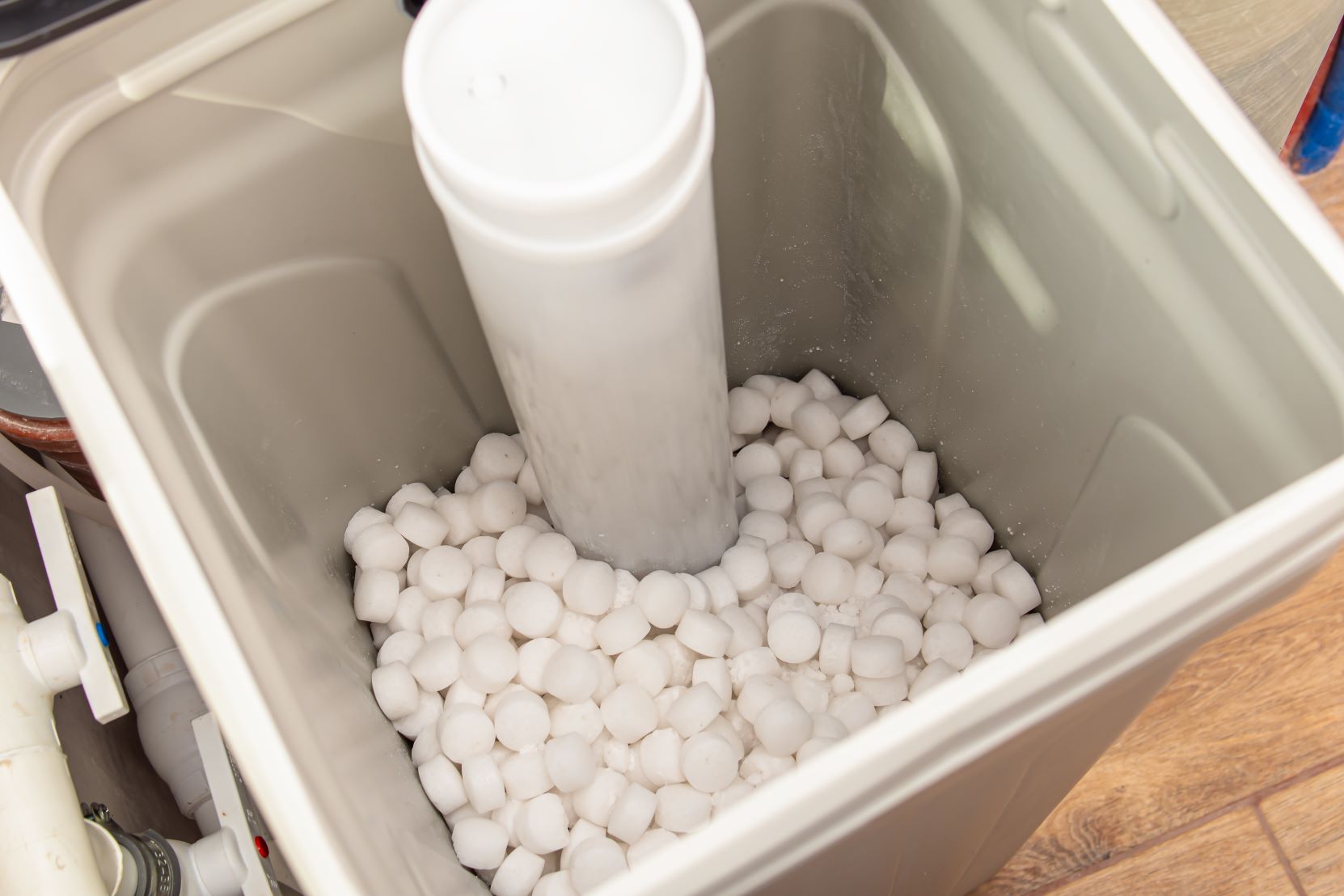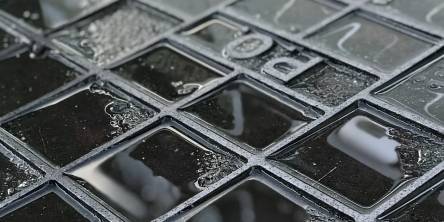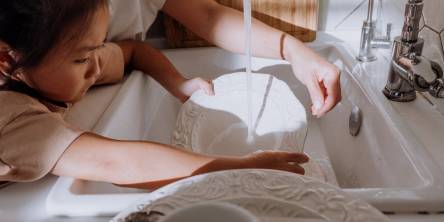How To Get Rid Of Hard Water: A Homeowner's Guide

Hard water is a common problem for many homeowners, often going unnoticed until its effects start to show. It's the culprit behind those stubborn limescale buildups on faucets, spotty dishes, and the soap that just won't lather.
More than just a nuisance, hard water can have long-term impacts on your home's plumbing, appliances, and even your skin and hair. It's important to address this issue not just for aesthetic reasons but also to protect your home and improve your overall quality of life.
What Is Hard Water?
Hard water is water that contains high levels of minerals, mainly calcium, and magnesium, which are picked up as the water flows through soil and rocks.
While not harmful to health, these minerals can cause limescale buildup in plumbing and appliances, reducing their efficiency and leading to higher energy costs and potential clogs. You'll often notice white, chalky deposits on faucets, showerheads, and inside appliances like dishwashers and water heaters.
Hard water also makes soaps and detergents less effective, leaving you with streaky dishes, stiff laundry, and a residue on your skin and hair that feels dry and dull after washing. That's why many homeowners prefer soft water, which has fewer minerals.
Unlike hard water, soft water prevents limescale buildup, helps cleaning products work better, and keeps appliances running smoothly, making it the ideal choice for households.
Signs You Have Hard Water
Identifying the presence of hard water in your home is the first step toward finding an effective solution. Hard water can go unnoticed until it starts causing visible and tangible issues around your house. Here are some common indicators that you might have hard water in your home.
- White, chalky deposits often appear on faucets and showerheads, indicating the presence of hard water.
- Soap scum may build up in sinks, bathtubs, and shower doors, making them harder to clean.
- Dishes and glassware can come out of the dishwasher with spots, even after a thorough wash.
- Laundry may feel stiff or scratchy, lacking the softness you'd expect, even when using fabric softener.
- Hard water can leave your skin and hair feeling dry, dull, or sticky after washing.
- Reduced water flow from faucets or showerheads can occur due to mineral buildup in the pipes.
If you're unsure whether hard water is an issue in your home, testing is a straightforward way to find out and determine if you need a water softener. You can purchase a home water test kit from a hardware store or online. Alternatively, you can hire a professional to test your water and provide a detailed analysis of its hardness level.
How To Get Rid Of Hard Water
Hard water can be a persistent issue, but there are several options to address it, each with unique advantages and considerations. Here's a closer look at the most common methods to help you decide which one is best suited for your home:
Option 1: Install a Water Softener
A water softener is an effective solution for hard water, exchanging calcium and magnesium ions with sodium or potassium to reduce mineral content. Types include salt-based, salt-free, and magnetic systems.
Salt-based softeners are highly effective but need regular maintenance and salt refills, while salt-free systems require less upkeep but may be less effective for very hard water.
Professional installation is typically required, and the system operates automatically once set up. Regular maintenance ensures the system runs efficiently.
Option 2: Use a Descaler
Water descalers offer a maintenance-free option by using electromagnetic waves to change the structure of minerals, reducing buildup in pipes and appliances. They are less effective than softeners at removing minerals but help improve water flow without salt or chemicals.
Installation is simple, involving wrapping a coil around the main water line, and requires no ongoing upkeep, making descalers a convenient solution for reducing hard water effects.
Option 3: Consider Whole-House Filters
Whole-house filtration systems help manage hard water by filtering sediments, chlorine, and some minerals, enhancing water quality. While not as effective as softeners for removing calcium and magnesium, these filters improve water taste and reduce chlorine exposure.
Professional installation is typically needed, and maintenance involves replacing filters every few months based on usage. Whole-house filters are a useful supplement to other hard water treatments.
Option 4: Regularly Clean Fixtures and Appliances
Regular cleaning of fixtures and appliances is essential to manage hard water deposits. Soak faucets and showerheads in vinegar to dissolve buildup, or use a vinegar-filled plastic bag secured around fixed parts.
Run cleaning cycles with vinegar or a commercial cleaner for dishwashers and washing machines to break down deposits. Flush water heaters annually to remove sediment, extending their lifespan and efficiency. Consistent cleaning helps maintain your home's water systems against hard water damage.
Choosing the right method to combat hard water depends on the severity of the problem, your budget, and how much maintenance you are willing to undertake. Addressing hard water in your home can lead to significant improvements in water quality, appliance longevity, and overall comfort.
Final Thoughts
Addressing hard water in your home is essential for protecting your plumbing, appliances, and daily comfort. Whether you opt for a water softener, descaler, whole-house filter, or regular cleaning routines, each solution offers a way to reduce the impact of hard water.
Similar Articles
A well-maintained yard drainage system is key to preserving the beauty and health of any property. Poor drainage can lead to standing water, soil erosion, and even foundational damage to structures over time.
Keep your seaside home in top shape with these 4 expert tips! Learn about weatherproof materials, smart maintenance, and managing coastal challenges effectively.
Explore the future of roofing! Discover energy-efficient materials, smart systems, and sustainable designs reshaping modern home construction trends.
HVAC stands for heating, ventilation, and air conditioning. These all-in-one systems keep your home comfortable and improve air quality throughout a building. Often used in commercial buildings, HVAC units are increasingly used in residential buildings.
Safeguard your home after storms with timely roof repairs. Detect damage early, choose durable materials, and rely on a pro for lasting protection and peace of mind.
Learn how to balance a clean home and family life with these 6 practical tips to manage clutter, involve kids in chores, and set realistic expectations.
Homeowners are increasingly drawn to farmhouse-style architecture, which creates an inviting atmosphere in their homes that prioritizes comfort and coziness over aesthetics.
Discover transformative home renovation ideas for modern living, with trends, expert tips, and sustainable, budget-friendly practices to elevate your space.
Exterior shutters can make a brick house stand out, adding personality and charm. Homeowners often wonder if installing shutters on brick is a challenge, and it’s a valid concern.










